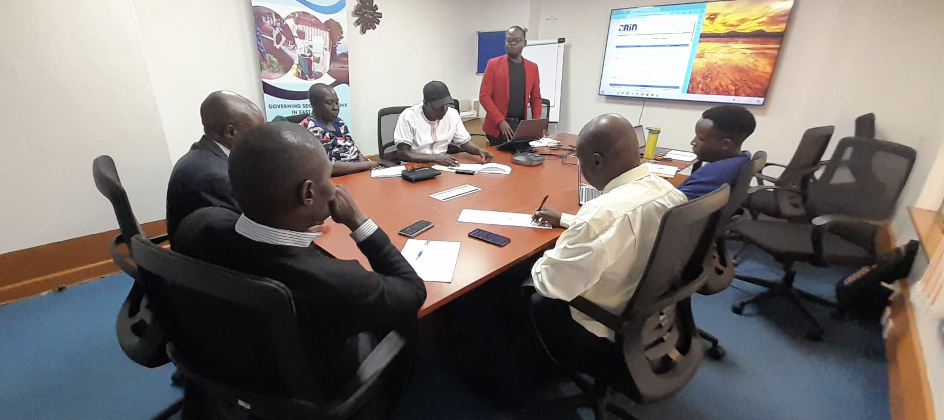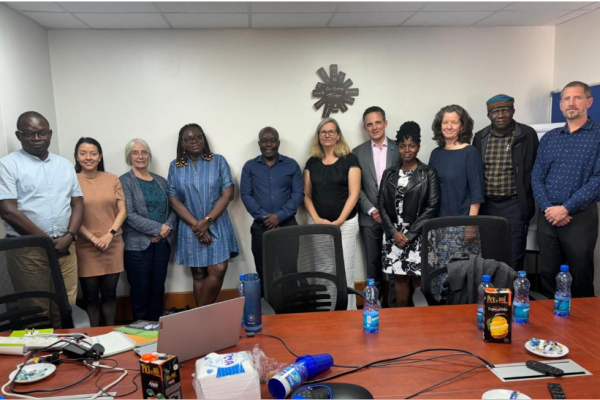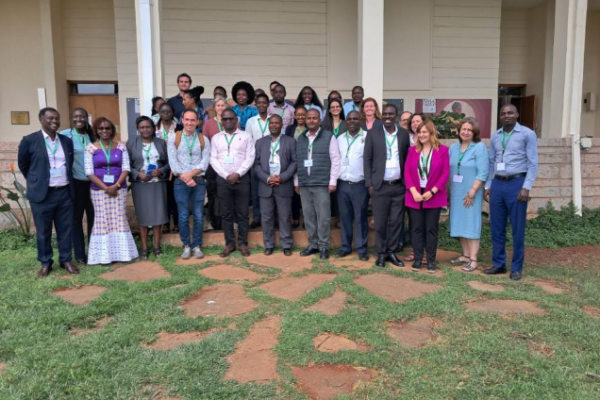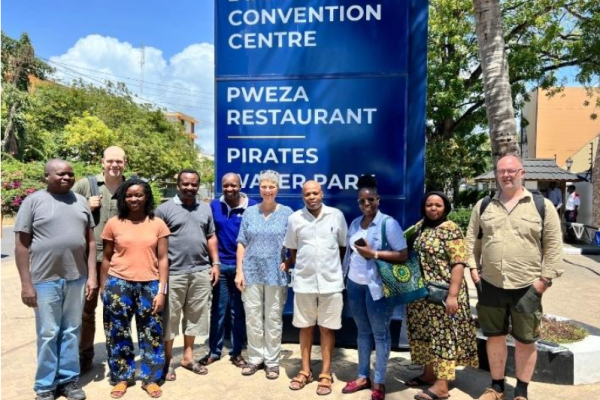By: Jerry Ariel, Florence Onyango
The Africa Research and Impact Network (ARIN) and the Grassroot Impact Center (GIC) recently joined forces to plan the implementation of the Locally-led Adaptation Metrics for Africa (LAMA) Project. A productive meeting was held between June 26th and 28th, 2024, to discuss and establish a comprehensive work plan.
Through collaborative efforts, the teams identified three key study areas within the Lake Region Ecosystem Benefits (LREB) counties. These specific locations were chosen based on a thorough consideration of catchment areas, ethical considerations, socio-economic activities, and the urban-rural makeup of the communities.
The chosen areas include Nandi, representing the crucial upper catchment zone for water sources and agriculture; Vihiga, located in the middle catchment and known for its diverse economic activities; and Kisumu, situated in the lower catchment near the lake, where soil erosion is a significant concern for agricultural practices. To establish a strong baseline for the study areas, context analysis was conducted using LREB maps and demographics.
Moving forward, the teams agreed on the methodologies to be used for data collection. Questionnaires will be a primary tool, with a target of 500 to be distributed. Of these, 150 will be focused on the target counties, with an additional 50 questionnaires potentially distributed depending on the quantity and quality of data collected in those areas. The questionnaires will target social groups, smallholder farmers, and their farming practices to gain valuable insights.
Focus Group Discussions (FGDs) are also planned, with a total of 20 sessions to be held. Three FGDs will be held in the target counties, while the remaining 11 will be conducted in other LREB counties. These discussions will address any ambiguities regarding the project and provide an initial overview of LAMA.
Key Informant Interviews (KIIs) will be another crucial component of data collection, with a target of 100 interviews to be conducted. At least 30 KIIs are planned per county to gather insights from individuals with specialized knowledge. Finally, policy labs will be conducted to integrate LAMA research findings into policy development. These sessions will involve 15-20 participants from county, national, and global levels.
To ensure a smooth execution of the project, a detailed timeline was established. This timeline lays out deadlines for interviewing research applicants, selections, preliminary field visits, data collection, and data analysis. Recognizing the importance of training, a plan was developed to provide training for the GIC technical team on adaptation metrics, followed by training for the selected research assistants.
Strategies for identifying and engaging key contacts for FGDs, KIIs, and policy labs were also discussed. These contacts may include community leaders, extension officers, local government officials, seed company representatives, women’s groups, and international organizations, ensuring a comprehensive and inclusive approach.
The meeting also assessed GIC’s preparedness for the project. This assessment covered aspects such as identifying suitable locations for interviews and training, determining the number of applicants for research assistant positions, assessing GIC’s resources for training execution, data collection, and applicant record management during fieldwork, establishing plans for accommodating research assistants during fieldwork and developing a plan for project-related expenses. GIC also highlighted potential challenges, including staffing gaps and the availability of electronic devices for data collection.
The LAMA project follows a “bottom-up” approach, starting at the local level (households) and progressing upwards to county, national, and global levels. Data collected through household surveys, FGDs, KIIs, and policy labs will be compiled to inform local, national, and international policy decisions related to climate change adaptation. This information will ultimately be disseminated through a dedicated LAMA platform. This collaboration between ARIN and GIC holds significant promise for advancing the understanding of locally-led adaptation strategies in Africa. The LAMA project’s findings are expected to be crucial for informing effective climate change policies at all levels.
© ARIN Press




